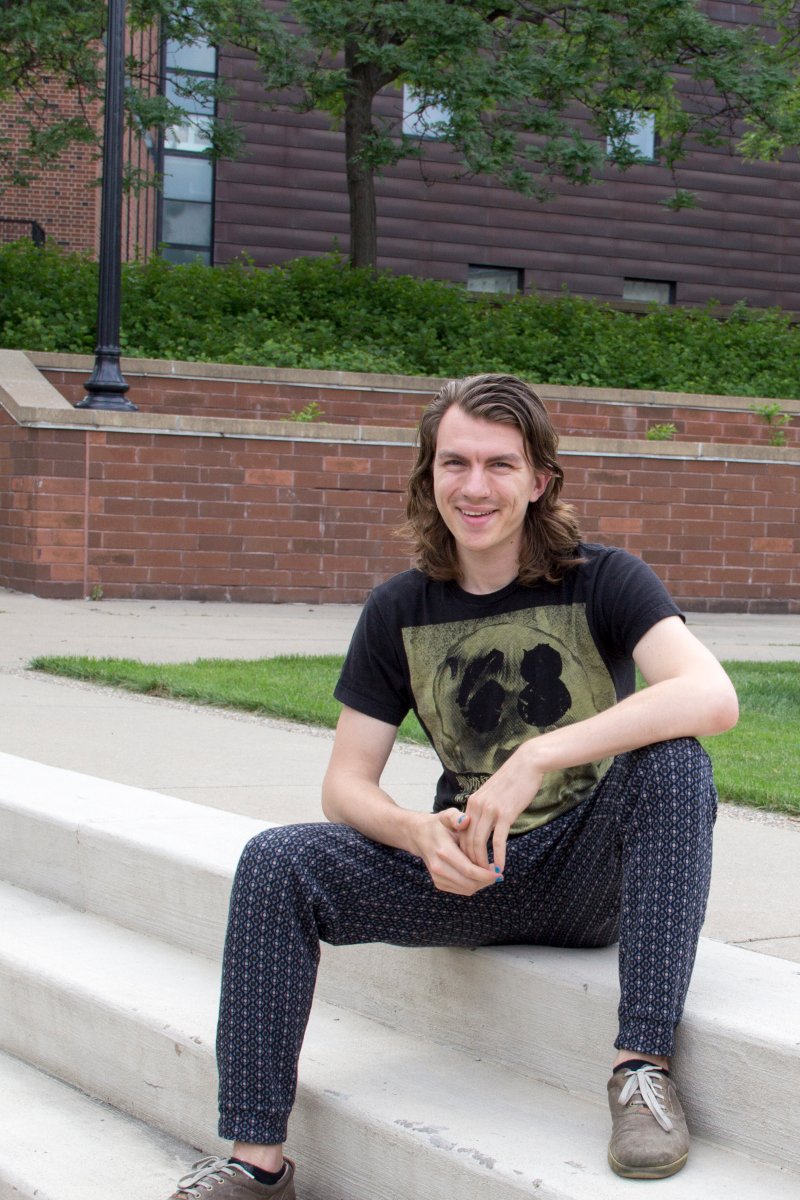Student Profile: Noah Germolus

NOAH GERMOLUS (BEnvE 2018) is an engineer and a performing musician (mainly saxophone); he loves being outdoors as much as working out solutions on a computer; he’s comfortable in the Boundary Waters and, relatively so, when making a speech at commencement. Germolus tries a lot of new things just in case he might like them. But one thing is consistent: Noah Germolus is committed to environmental engineering.
His path started, in his words, “waaay back in 6th grade.” He and his classmates were told that smart kids who did math should go into engineering. Germolus learned about CEGE’s program in environmental engineering when exploring careers.
His first year at UMN, Germolus took Computer Applications (CA), although it typically comes up later in the curriculum. “The first assignment culminated about one a.m. on a Saturday with me sitting alone at the granite table. I finished my homework. I looked up. Everyone was gone, just me and my computer. I thought, ‘So this is what school will be like from now on.’ But there was plenty of fun, too.” Germolus credits Associate Professor Stefano Gonella for helping him through CA. “Gonella was very enthusiastic about numerical methods. Having taken only basic calculus, the ideas were foreign to me. I learned to think in a higher-level way.”
Solid and Hazardous Waste with Teaching Assistant Professor Erin Surdo was another class that helped Germolus see the impact of engineering. The class toured the Evoqua Water Technologies facility in Roseville. “In class, our problems were on the scale of a 55-gallon barrel. At the waste management facility, we were faced with gargantuan projects! Tanks there held thousands of gallons of pure sulfuric acid. I realized how much design effort goes into an endeavor like that. It became apparent that we were preparing for massive and critically important projects.”
In January of his junior year, Germolus went to Tanzania on a 3-week study abroad program. The trip was headed by Paul Strykowski, CSE Associate Dean for Undergraduate Programs, and coordinated through St. Paul Partners, a group that works in partnership with Tanzanian communities to improve life by providing safe water. His team designed a water distribution system based on the village’s input. After returning to the US, the team presented their design to St. Paul Partners. If funds are raised, the students’ plan could be constructed as a joint project between St. Paul Partners and the villagers of Kidilo. Germolus’ chief takeaway after seeing the project’s emphasis on service was a greater understanding of the value of engineering “as a joint effort rather than an act of esoteric mathematics. The project focused on the people and providing something they asked for. It was a good example of engineering in collaboration with a community.”
For his undergraduate honors thesis, Germolus conducted a research project with Professors Bill Arnold and Ray Hozalski. Emeritus Professor Pat Brezonik was his mentor. Germolus continued working with Brezonik the summer after graduation on ways of measuring, sensing, and analyzing chromophoric dissolved organic matter (CDOM), the tannins from dead leaves or decaying matter that color water.
Due to his industry and intelligence, Germolus received scholarships from several donors: Richard Dennis Memorial, City Engineers Association of Minnesota, American Council of Engineering Companies (ACEC), and Dennis and Catherine Martenson.
Germolus’ interactions with donors went beyond a simple thank you. “With ACEC, I helped out with the charity golf event and presented at the annual meeting about work I did in Tanzania. Dennis Martenson was a Capstone instructor. It was great knowing that a renowned engineer with decades of experience supported me and my classmates.”
This fall Germolus is in graduate school at the Massachusetts Institute of Technology–Woods Hole Oceanographic Institute Joint Program (MIT-WHOI). “My choice to study at MIT-WHOI started at a Warren Lecture. Professor Bill Arnold had invited Liz Kujawinski from WHOI to speak. She described her research using the chemistry of the ocean to understand microbial communities. Her entire lecture, I was entranced. I thought if I could do that kind of work, I would be happy,” recalls Germolus.
Early on, Germolus had grandiose views of what he wanted to accomplish for the environment. He now sees that environmental engineering often addresses problems that might never go away— dealing with human waste or managing water supplies. He is still committed to doing his part to make the world a more sustainable place.